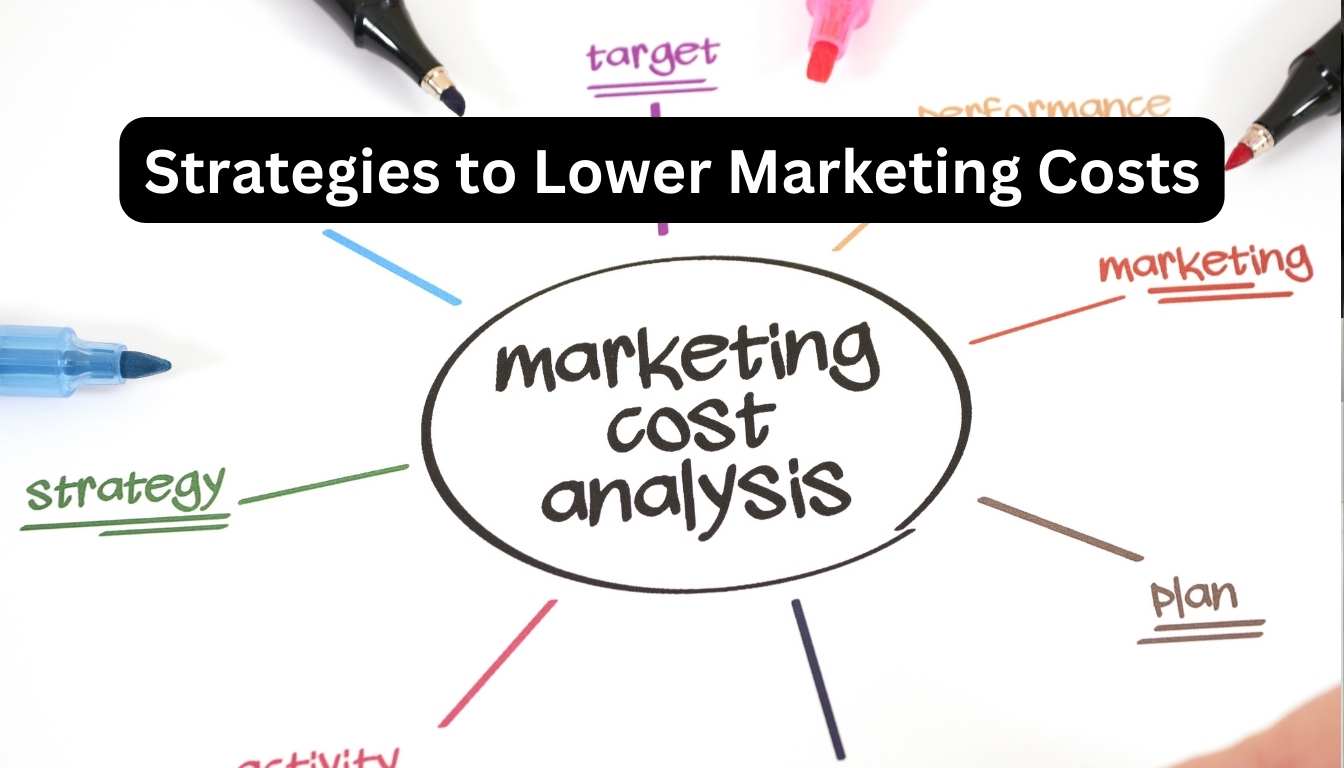Full stack marketing refers to the practice of having a marketing team or agency that has expertise across multiple disciplines in the field of marketing. This includes a wide range of skills, from digital marketing channels like SEO and PPC, to customer research and persona development, to conversion rate optimization and analytics analysis. The concept of full stack marketing originated from the software development industry, where a full stack developer is proficient in all aspects of the development process. In marketing, a full stack marketer is someone who has a broad understanding and experience in different areas of marketing, allowing them to create a holistic and integrated marketing program.
Key Takeaways:
- Full stack marketing involves having expertise across multiple marketing disciplines.
- It includes skills in digital marketing, customer research, conversion rate optimization, and analytics analysis.
- Full stack marketing originated from the concept of full stack development in the software industry.
- A full stack marketer has a broad understanding and experience in different areas of marketing.
- Full stack marketing allows for a holistic and integrated marketing approach.
The Benefits of Full Stack Marketing Strategies
Full stack marketing offers several benefits that make it a valuable approach for businesses. By implementing full stack marketing strategies, companies can enhance their marketing efforts, save costs, access expert help, and improve data analysis.
- Effective Marketing Efforts: With full stack marketing, businesses have one team and one plan, which leads to more cohesive and effective marketing campaigns. This approach ensures that all marketing initiatives work together seamlessly, resulting in better outcomes.
- Cost Savings: Utilizing one agency for all marketing needs in a full stack marketing strategy is often more cost-effective than hiring multiple specialists. It eliminates the need for managing separate contracts, streamlining processes, and reducing overall marketing expenses.
- Quick Changes and Adjustments: Full stack marketing allows for swift changes and adjustments to be made when something isn’t working well. This agility enables marketers to optimize campaigns in real-time and adapt to evolving market conditions.
- Access to Expert Help: Full stack marketing agencies have a deep understanding of different industries and can provide valuable insights and recommendations. Businesses can leverage this expertise to gain a competitive edge and make informed marketing decisions.
- All-in-One Service: With full stack marketing, businesses can get all their marketing needs met from one place. This simplifies the process and eliminates the hassle of coordinating multiple agencies or freelancers.
- Better Data Analysis: Full stack marketing enables businesses to gather and analyze comprehensive data from different marketing channels. This data-driven approach enhances decision-making, identifies trends, and optimizes strategies for maximum impact.
- Consistent Quality: By working with one agency for all marketing needs, businesses can ensure consistent quality across their marketing efforts. This alignment results in a cohesive brand experience and builds trust with the target audience.
- Time Savings: Dealing with only one agency in a full stack marketing approach saves time and reduces administrative tasks. This allows businesses to focus more on strategy and execution, leading to greater efficiency and productivity.
- Customization: Full stack marketing services can be tailored to meet specific business needs. The agency can develop strategies and tactics with a deep understanding of the company’s goals, target audience, and industry, resulting in personalized and effective marketing solutions.
Visualizing the Benefits of Full Stack Marketing Strategies
Take a look at the visual representation below to understand how full stack marketing strategies provide numerous advantages:
| Benefits of Full Stack Marketing Strategies |
|---|
| Effective Marketing Efforts |
| Cost Savings |
| Quick Changes and Adjustments |
| Access to Expert Help |
| All-in-One Service |
| Better Data Analysis |
| Consistent Quality |
| Time Savings |
| Customization |
Implementing full stack marketing strategies empowers businesses to optimize their marketing efforts, streamline processes, and achieve better results. The comprehensive nature of full stack marketing ensures that every aspect of the marketing mix is integrated and aligned towards the common goal of driving business growth.
The Role of a Full Stack Marketer
A full stack marketer plays a crucial role in overseeing and executing marketing campaigns across various channels and disciplines. They possess a broad understanding of marketing strategies and tactics, allowing them to develop comprehensive and integrated marketing programs. Here are the key responsibilities and skills of a full stack marketer:
Data Analysis and Audience Identification
A full stack marketer is adept at analyzing data to gain insights into consumer behavior, market trends, and campaign performance. By leveraging data analytics tools, they identify target audiences and tailor marketing strategies accordingly, ensuring the right message reaches the right people.
Content Creation
A full stack marketer is skilled in creating compelling content that engages and resonates with the target audience. Whether it’s writing blog posts, designing infographics, or producing videos, they leverage their creativity and storytelling abilities to deliver impactful marketing messages.
Social Media Management
Full stack marketers excel at managing social media accounts and leveraging platforms like Facebook, Twitter, Instagram, and LinkedIn. They develop social media strategies, create engaging content, and monitor and respond to audience interactions, ensuring consistent brand messaging and high engagement levels.
Search Engine Optimization (SEO)
Full stack marketers understand the importance of optimizing websites for search engines to maximize visibility and organic traffic. They conduct keyword research, optimize on-page elements, create valuable backlinks, and continuously monitor and refine SEO strategies to enhance search engine rankings.
Campaign Performance Tracking
Full stack marketers closely monitor and track campaign performance using analytics tools. They analyze key metrics such as click-through rates, conversion rates, and return on investment (ROI), allowing them to make data-driven decisions and optimize marketing efforts for better results.
Collaboration with Specialists
Full stack marketers work closely with growth strategists, channel specialists, designers, and other stakeholders to develop effective marketing strategies. They collaborate with team members from different disciplines, ensuring cohesive messaging and a holistic approach to marketing.
A full stack marketer is a versatile marketing professional who possesses a diverse skill set and the ability to adapt to evolving marketing landscapes. Their role revolves around driving successful marketing campaigns, analyzing data, creating compelling content, managing social media, optimizing websites for search engines, and collaborating with specialists across different disciplines. By combining these skills, full stack marketers contribute to the overall success of marketing initiatives and help businesses achieve their goals.
Essential Skills for Full Stack Marketers
Full stack marketers play a crucial role in driving successful marketing campaigns across multiple channels and disciplines. To excel in this role, they must possess a diverse set of skills that enable them to navigate the complexities of the marketing landscape. Here are some essential skills that full stack marketers should have:
1. Strong Communication and Interpersonal Skills
Effective communication and interpersonal skills are vital for full stack marketers as they frequently collaborate with various team members and stakeholders. Clear and concise communication ensures that everyone is aligned with the marketing objectives and can work together harmoniously.
2. Knowledge of Various Marketing Channels and Tactics
Full stack marketers should have a deep understanding of various marketing channels and tactics to develop comprehensive marketing strategies. This includes being well-versed in SEO (Search Engine Optimization), PPC (Pay-Per-Click) advertising, content marketing, social media marketing, and email marketing. This knowledge allows full stack marketers to leverage the appropriate channels to reach target audiences effectively.
3. Analytical Skills
Analytical skills are crucial for full stack marketers to make informed marketing decisions. They need to analyze data and metrics to measure the performance of marketing campaigns, identify trends, and gain insights into consumer behavior. By leveraging data, full stack marketers can optimize marketing strategies and drive better results.
4. Creativity, Adaptability, and Problem-Solving Abilities
Full stack marketers should possess a high level of creativity, adaptability, and problem-solving abilities. These skills enable them to come up with innovative marketing strategies, navigate through challenges, and adapt to changing market dynamics. They need to think outside the box and find unique solutions to marketing problems.
Overall, full stack marketers need to be versatile and well-rounded individuals who can handle various aspects of marketing. Their skills and expertise allow them to craft integrated marketing campaigns that deliver tangible results.
| Skills | Description |
|---|---|
| Communication and Interpersonal Skills | Strong communication and interpersonal skills to collaborate effectively with team members and stakeholders. |
| Knowledge of Various Marketing Channels and Tactics | Deep understanding of SEO, PPC, content marketing, social media marketing, and email marketing. |
| Analytical Skills | Ability to analyze data and metrics to make informed marketing decisions. |
| Creativity, Adaptability, and Problem-Solving Abilities | Capability to think creatively, adapt to change, and solve marketing challenges. |
Tools for Full Stack Marketing
Full stack marketers leverage a range of powerful tools to optimize their marketing efforts and drive results. These tools enable streamlined processes, efficient automation, comprehensive analytics, and effective campaign management. Here are some essential tools used in full stack marketing:
Marketing Automation Platforms
Marketing automation platforms play a crucial role in full stack marketing by automating repetitive tasks and improving overall efficiency. These platforms enable marketers to automate email marketing campaigns, lead nurturing, social media scheduling, and more. By leveraging marketing automation, full stack marketers can save time and resources while effectively engaging with their target audience.
Analytics Tools
Analytics tools, such as Google Analytics, provide full stack marketers with valuable insights into website and campaign performance. These tools track and analyze key metrics like website traffic, conversion rates, user behavior, and more. By leveraging analytics data, full stack marketers can make data-driven decisions, optimize their strategies, and enhance the overall effectiveness of their marketing campaigns.
Project Management Tools
Effective project management is crucial for full stack marketers to stay organized and ensure timely completion of tasks. Project management tools like Trello or Asana help in tracking project progress, assigning tasks, setting deadlines, and collaborating with team members. Such tools enable seamless coordination, efficient communication, and streamlined workflows, allowing full stack marketers to manage and execute their marketing campaigns effectively.
Content Management Systems
Content management systems (CMS) like WordPress provide full stack marketers with a user-friendly interface to create, manage, and publish content. CMS platforms simplify content creation, allow for easy content updates, and enable seamless website management. With a CMS, full stack marketers can efficiently optimize their content for search engines, improve website visibility, and enhance the overall user experience.
Social Media Management and Email Marketing Platforms
Full stack marketers rely on social media management platforms like Hootsuite or Sprout Social to efficiently manage multiple social media accounts, schedule posts, monitor engagement, and analyze social media performance. Additionally, email marketing platforms like Mailchimp or HubSpot enable full stack marketers to create, automate, and track email marketing campaigns, ensuring effective communication with their target audience.
SEO Tools
Search engine optimization (SEO) plays a critical role in full stack marketing. Full stack marketers utilize various SEO tools, such as SEMrush or Moz, to conduct keyword research, analyze website performance, track search engine rankings, and optimize their websites for improved visibility and organic traffic.
By leveraging these powerful tools, full stack marketers can streamline their marketing efforts, enhance productivity, and drive successful campaigns, delivering optimal results for businesses.
Techniques Used in Full Stack Marketing
Full stack marketers employ various techniques to maximize their marketing efforts. By utilizing a combination of different strategies, they create holistic and integrated marketing campaigns that effectively engage target audiences and drive results. The following techniques are commonly used in full stack marketing:
Customer Research and Persona Development
Understanding the target audience is crucial for creating targeted marketing campaigns. Full stack marketers conduct thorough customer research to gather insights about their audience’s preferences, behaviors, and pain points. They use this information to develop buyer personas, which are fictional representations of their ideal customers. These personas help guide the marketing strategies and ensure that the messaging resonates with the intended audience.
A/B Testing
A/B testing is a valuable technique used by full stack marketers to compare different versions of marketing materials and determine which one performs better. By testing different variations of elements such as headlines, call-to-action buttons, or email subject lines, marketers can gather data on user preferences and optimize their campaigns accordingly. A/B testing allows for data-driven decision-making and continuous improvement.
Conversion Rate Optimization
Conversion rate optimization (CRO) is the process of increasing the percentage of users who take a desired action on a website or app. Full stack marketers employ various strategies and tactics to optimize the user experience and enhance conversion rates. This may involve improving website usability, streamlining the checkout process, or creating persuasive landing pages. By constantly analyzing data and making iterative improvements, full stack marketers can drive more conversions and maximize the return on investment (ROI) of their marketing efforts.
Content Marketing
Content marketing is an essential technique used by full stack marketers to strategically create and distribute valuable content that attracts, engages, and nurtures leads. This can include blog posts, articles, videos, infographics, and more. Full stack marketers develop comprehensive content strategies, ensuring that the content aligns with the audience’s needs and preferences. With well-executed content marketing, businesses can establish thought leadership, build trust with their audience, and drive organic traffic to their websites.
Social Media Marketing
Social media marketing plays a significant role in full stack marketing strategies. Full stack marketers leverage various social media platforms to build brand awareness, engage with their audience, and drive traffic to their website or landing pages. They create compelling social media content, implement targeted advertising campaigns, and actively participate in relevant conversations to connect with their target audience. Social media marketing allows businesses to reach a wide audience and foster meaningful interactions with their customers.
Email Marketing
Email marketing remains a powerful technique for full stack marketers to nurture leads and drive conversions. They create personalized and automated email campaigns that deliver valuable content, promote products or services, and encourage users to take action. Full stack marketers use sophisticated email marketing tools to segment their audience, track email engagement, and continuously optimize their email campaigns for better results. Email marketing allows businesses to establish direct communication with their audience, strengthen customer relationships, and drive revenue.
Search Engine Optimization (SEO)
Search engine optimization is a fundamental technique used by full stack marketers to improve website visibility and drive organic traffic. They optimize websites and content using relevant keywords, meta tags, and other SEO best practices. Full stack marketers conduct thorough keyword research, monitor search engine rankings, and analyze website analytics to identify opportunities for optimization. By implementing effective SEO strategies, businesses can increase their online visibility, attract qualified traffic, and generate valuable leads.
| Technique | Description |
|---|---|
| Customer Research and Persona Development | Understanding the target audience and creating buyer personas to guide marketing strategies. |
| A/B Testing | Comparing different versions of marketing materials to determine better-performing options. |
| Conversion Rate Optimization (CRO) | Improving the percentage of users who take desired actions on websites or apps. |
| Content Marketing | Strategically creating and distributing valuable content to attract and engage leads. |
| Social Media Marketing | Utilizing social media platforms to build brand awareness and engage with the audience. |
| Email Marketing | Nurturing leads and driving conversions through personalized and automated email campaigns. |
| Search Engine Optimization (SEO) | Optimizing websites and content to improve visibility and drive organic traffic. |
The Four Pillar Components of Full Stack Marketing
In the world of full stack marketing, success is built upon four key pillars: market research, traffic generation, conversion optimization, and analytics analysis. Let’s explore each of these components in detail:
1. Market Research
Market research serves as the foundation for any effective marketing campaign. By conducting thorough research, businesses can gain valuable insights into their target audiences, identify their pain points, and develop compelling messaging. This component helps marketers understand customer needs, preferences, and behaviors, enabling them to create tailored marketing strategies that truly resonate.
2. Traffic Generation
Traffic generation involves driving qualified and targeted traffic to a website or landing page. It encompasses various channels and strategies, such as search engine optimization (SEO), pay-per-click (PPC) advertising, content marketing, social media marketing, and influencer partnerships. By implementing these tactics, full stack marketers ensure that their message reaches the right audience, increasing the chances of conversions and sales.
3. Conversion Optimization
Conversion optimization is all about maximizing the percentage of users who take a desired action, such as making a purchase or filling out a form. It involves analyzing user behavior, conducting A/B testing, optimizing landing pages, and implementing persuasive call-to-actions (CTAs). Full stack marketers constantly refine their strategies to create frictionless user experiences that encourage conversions and drive business growth.
4. Analytics Analysis
Analytics analysis plays a crucial role in full stack marketing. By examining and interpreting data collected from various sources, such as website analytics, social media metrics, and campaign performance reports, marketers gain valuable insights into their marketing efforts. This allows them to make data-driven decisions, optimize their campaigns, and continuously improve performance.
| Pillar | Description |
|---|---|
| Market Research | Serves as the foundation for understanding target audiences and developing effective messaging. |
| Traffic Generation | Involves driving qualified and targeted traffic through various marketing channels and strategies. |
| Conversion Optimization | Focuses on increasing the percentage of users who take desired actions, such as making a purchase. |
| Analytics Analysis | Examines and interprets data to make informed marketing decisions and improve performance. |
By embracing these four pillar components, businesses can create effective full stack marketing strategies that deliver measurable results. Each component plays a vital role in achieving marketing goals and driving business success.
The Importance of Continuous Learning in Full Stack Marketing
In order to be successful in full stack marketing, continuous learning is essential. The marketing landscape is constantly evolving, with new channels, tools, and strategies emerging all the time. Full stack marketers need to stay updated on the latest trends and best practices in order to remain effective. They should actively seek out learning opportunities, such as attending conferences, taking online courses, and reading industry publications. Continuous learning allows full stack marketers to adapt to changes, improve their skills, and stay ahead of the competition.
To emphasize the importance of continuous learning in full stack marketing, let’s take a closer look at some key points:
1. Keeping Up with Emerging Trends and Technologies
Continuous learning ensures that full stack marketers are aware of and can capitalize on the latest trends and technologies in the marketing industry. This knowledge allows them to stay ahead of the curve and adapt their strategies accordingly. Whether it’s the rise of voice search, the emergence of new social media platforms, or advancements in marketing automation tools, continuous learning keeps full stack marketers informed and prepared.
2. Enhancing Skills and Expertise
Continuous learning provides full stack marketers with opportunities to enhance their skills and expertise in different areas of marketing. By continuously improving their knowledge and capabilities, full stack marketers can offer a wider range of services to their clients or organizations. Whether it’s mastering the latest SEO techniques, becoming proficient in data analysis, or developing advanced content marketing strategies, continuous learning allows full stack marketers to become well-rounded professionals.
3. Adapting to Changing Consumer Behaviors
Consumer behaviors and preferences are constantly evolving, and full stack marketers need to stay in tune with these changes. By continuously learning about consumer trends and behaviors, full stack marketers can tailor their marketing strategies to effectively engage and resonate with target audiences. Whether it’s understanding the shift towards mobile usage, the rise of video content consumption, or the demand for personalized experiences, continuous learning helps full stack marketers anticipate and adapt to changing consumer behaviors.
4. Embracing Innovation and Experimentation
Continuous learning encourages full stack marketers to embrace innovation and experimentation in their marketing efforts. By staying curious and open to new ideas, full stack marketers can explore innovative strategies, techniques, and tools that can drive better results. Whether it’s testing a new ad format, experimenting with interactive content, or leveraging emerging technologies like AI and chatbots, continuous learning empowers full stack marketers to push boundaries and discover new opportunities for success.
5. Fostering Professional Growth and Longevity
Continuous learning is not only essential for immediate success, but also for long-term professional growth and longevity in the field of full stack marketing. By investing in their own development and staying updated on industry trends and best practices, full stack marketers can position themselves as valuable assets to their clients or organizations. Continuous learning allows full stack marketers to stay relevant, adaptable, and in demand, ensuring a thriving career in the ever-changing marketing landscape.
| Benefits of Continuous Learning in Full Stack Marketing | How it Impacts Full Stack Marketers |
|---|---|
| Keeps full stack marketers up-to-date with industry trends and best practices | Ensures effective and relevant marketing strategies |
| Enhances full stack marketers’ skills and expertise | Enables them to offer a wider range of services |
| Helps full stack marketers adapt to changing consumer behaviors | Drives engagement and resonance with target audiences |
| Encourages innovation and experimentation in marketing efforts | Unlocks new opportunities and strategies for success |
| Fosters long-term professional growth and longevity | Positions full stack marketers as valuable assets in the industry |
Conclusion
Full stack marketing is a comprehensive approach to marketing that offers numerous advantages for businesses. By leveraging the expertise of a team or agency with diverse skills across multiple disciplines, companies can benefit from coordination, cost savings, expert help, and all-in-one service. Full stack marketers play a crucial role in developing and executing integrated marketing strategies across various channels, utilizing a wide range of tools and techniques.
Moreover, full stack marketing enables better data analysis, ensuring that businesses have access to valuable insights and can make informed decisions to improve their marketing performance. The ongoing partnership with a full stack marketing agency fosters consistent quality in marketing efforts and saves time by dealing with only one agency. Additionally, full stack marketers continuously learn and adapt, staying ahead of the constantly evolving marketing landscape.
By embracing full stack marketing, businesses can create holistic and customized marketing programs that yield optimal results. Whether it’s driving targeted traffic, optimizing conversions, or analyzing data, full stack marketing provides a comprehensive solution that helps businesses achieve their marketing goals and drive success in today’s competitive market.





